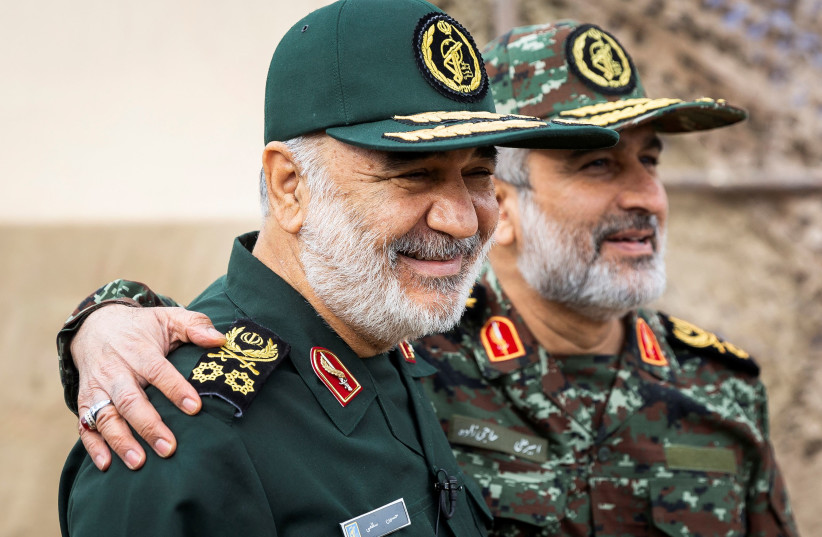The Israel Air Force and its Air Defense Command have raised their alert following Iran’s warning that it will avenge the deaths of two Iranian Revolutionary Guard Corps (IRGC) officers killed in an alleged Israeli airstrike earlier this week near Damascus.
The military is concerned that Iran might try to avenge the deaths of the two officers by either firing rockets toward Israel or launching drone strikes against IDF targets.
The IRGC was quoted by Iran’s Tasnim news agency saying that “the Zionist regime will undoubtedly pay the price for such a crime.”
According to the opposition-affiliated Halab Today TV, the strike targeted sites near the Damascus airport and the Al-Assad Suburb, killing four Syrian soldiers and hitting an Iranian weapons depot. The civilian deaths were caused by Syrian air defense missiles falling on residential areas, according to the report.
The Capital Voice reported that the strikes targeted an Iranian weapons warehouse in the Al-Qutayfah area and sites near the Damascus International Airport.

The two officers who were killed in a strike on Monday were identified by Tasnim as Col. Ehsan Karbalaeepour and Col. Morteza Saeednejad. According to reports, the two men were involved in Hezbollah’s precision-missile project.
The group, which has been working on the expensive and classified project since 2013, has been attempting to build factories to produce precision missiles in South Lebanon, Beirut, and the Bekaa under the guidance of senior Iranian officers.
Hezbollah has over 130,000 rockets and missiles of all sorts of ranges and payloads, and while the group has been working on this project for close to a decade, they have only several dozen precision missiles.
Israel has been operating in Syria to stop the project, and according to foreign reports also in Lebanon and Iraq, as well as working to prevent Iran from smuggling advanced weaponry to the terror group as part of its war-between-wars campaign, known in Hebrew by the acronym MABAM.
Its campaign, which also began in 2013, has been called one of the most precise military campaigns by Airwars, which tracks all civilian harm by all foreign actors in Syria since 2014. According to researchers, over 600 militants and Syrian and Iranian troops have been killed in the strikes since it began.
While Hezbollah terrorists and Iranian forces have been killed in alleged Israeli airstrikes in Syria, the IDF usually raises its alert level if the deaths are confirmed.
In May 2018, Iran launched 32 Fajr-5 and Grad missiles toward Israel’s Golan Heights in retaliation for a strike that killed seven IRGC soldiers in Syria.
In response, Israel struck 50 mainly Iranian targets in Syria in an operation called “House of Cards.”
Hezbollah terrorist Ali Kamel Mohsen was killed in an Israeli airstrike in July 2020, which targeted several sites around Damascus including a major ammunition depot, and killed several Iranian and Syrian personnel.
Hezbollah vowed to avenge Mohsen’s death, leading the IDF to reinforce the North with additional troops and air defense batteries. The Lebanese terrorist group tried at least twice to avenge his death, including sending a cell of three to five Hezbollah operatives to cross into Israeli territory near Mount Dov.
Though they were able to cross several meters into Israel, they fled back to Lebanon after the IDF opened fire with machine guns and tank shells.
Tzvi Joffre contributed to this report.
